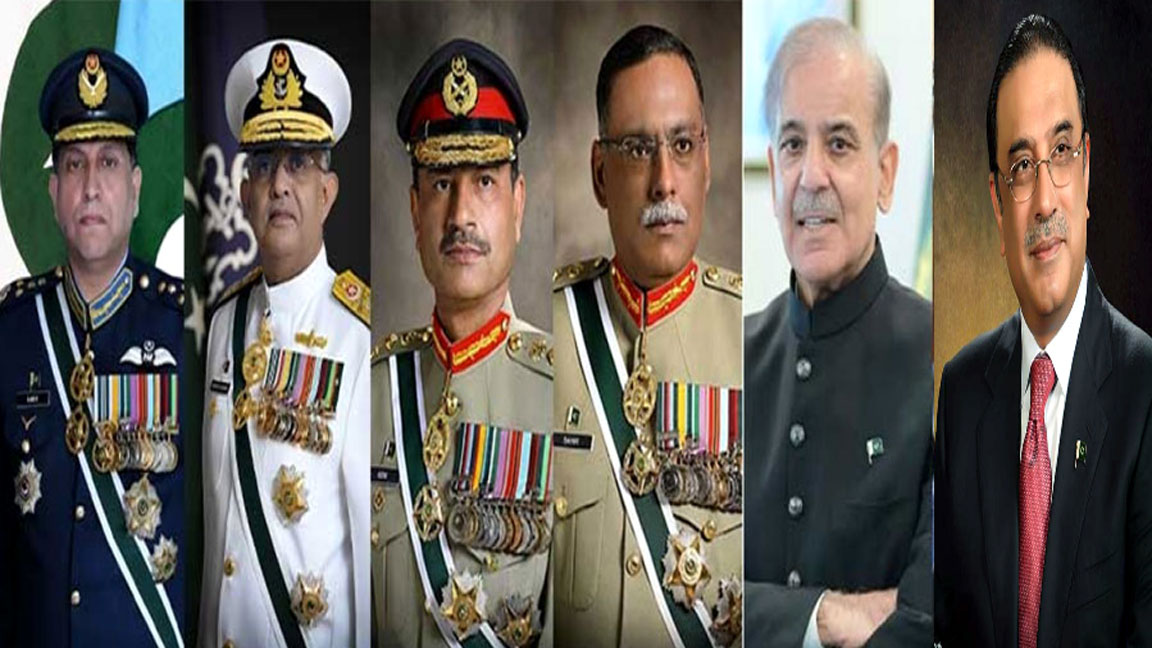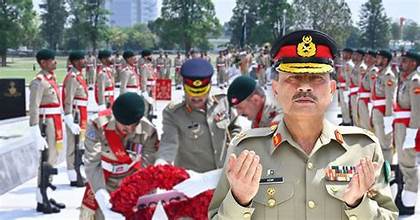On August 5, 2025, Pakistan solemnly observed Youm-e-Istehsal (Day of Exploitation) to mark six years since India’s unilateral and illegal revocation of Article 370 and 35A, which stripped the Indian Illegally Occupied Jammu and Kashmir (IIOJK) of its special constitutional status. As the nation stood in solidarity with the oppressed people of Kashmir, Pakistan’s Armed Forces reaffirmed their unwavering commitment and support for the Kashmiri people’s right to self-determination under the United Nations resolutions.
This day, observed with great emotion and national unity across Pakistan, has become a symbol of the country’s moral, political, and diplomatic backing for the Kashmiri struggle. Among the most prominent voices on this day were those of the Pakistan Armed Forces, who not only echoed the sentiments of the nation but also underscored their continued support for the cause of Kashmir.
A Strong Message of Solidarity from the Armed Forces
The Inter-Services Public Relations (ISPR), the media wing of the Pakistan military, issued a strong and clear statement reaffirming the Armed Forces’ support for the people of IIOJK. The statement emphasized that Pakistan stands resolute with the Kashmiris in their just struggle against decades of Indian oppression, occupation, and human rights abuses.
The military highlighted the illegal nature of India’s 2019 move, which violates multiple United Nations Security Council (UNSC) resolutions, the Geneva Conventions, and the will of the Kashmiri people. According to ISPR, the Armed Forces of Pakistan are fully prepared and committed to defend the territorial integrity and sovereignty of Pakistan, and stand shoulder-to-shoulder with the Kashmiri brethren in their valiant resistance.

Nationwide Observance with Military Participation
Across Pakistan, ceremonies, seminars, and rallies were held to honor the sacrifices of the Kashmiri people. The Armed Forces participated in various awareness campaigns, flag hoisting events, and solidarity walks. In Azad Jammu and Kashmir (AJK), special events were organized in collaboration with military and civil authorities to commemorate the day and to highlight the plight of Kashmiris under Indian occupation.
At military garrisons and units across the country, prayers were offered for the freedom of IIOJK. Special tributes were paid to the martyrs of the Kashmir freedom movement. The Armed Forces used their platforms to educate the public, especially the youth, about the historical background and the ongoing suffering of Kashmiris.
Echoes from the Leadership
Chief of Army Staff (COAS) General Asim Munir also conveyed a powerful message. In his statement, he reiterated that Kashmir remains an unfinished agenda of the partition of the subcontinent and that peace in South Asia is not possible without the resolution of the Kashmir dispute in accordance with the aspirations of the Kashmiri people.
He further stated that no amount of Indian propaganda or misinformation can suppress the truth of the Kashmiri struggle. The COAS reaffirmed that the Armed Forces will always stand by the Kashmiris, morally and diplomatically, until they attain their right to self-determination.
Uniting the Nation Around the Kashmir Cause
The Armed Forces of Pakistan have consistently played a significant role in highlighting the Kashmir issue on global platforms, often through peacekeeping missions, international military dialogues, and defense diplomacy. Their solidarity statements are not merely symbolic—they represent a national consensus and act as a powerful reminder that the entire Pakistani state, from its civilian leadership to its military establishment, is united behind the people of IIOJK.

India’s Continued Oppression in IIOJK
Since the abrogation of Article 370, India has accelerated its attempts to change the demography of the region by issuing domicile certificates to non-Kashmiris, imposing military lockdowns, and stifling free speech. Human rights organizations around the world have expressed grave concerns about the escalating situation, including extrajudicial killings, arbitrary detentions, and restrictions on religious and political freedoms.
Despite the international silence or inaction in many quarters, Pakistan’s Armed Forces have continued to be a voice for justice, amplifying the cries of those who have been silenced inside IIOJK.
A Commitment to Peace and Justice
While the Armed Forces remain alert to any threats to national security, their message on Youm-e-Istehsal emphasized Pakistan’s commitment to peace. However, this peace cannot come at the cost of justice. The Kashmiri people deserve to live free from occupation and with dignity, and until that goal is achieved, Pakistan—both its people and its Armed Forces—will continue to raise their voices.
Conclusion
Youm-e-Istehsal serves not only as a day of remembrance but also as a call to action. Pakistan’s Armed Forces, with their powerful message of support and readiness, have once again proven that the cause of Kashmir is not forgotten. Their commitment reflects the nation’s deep-rooted belief in justice, freedom, and the rights of oppressed people.
As the global community continues to watch the developments in the region, Pakistan’s Armed Forces have drawn a clear red line—Kashmir is not just a territorial issue; it is a human issue, and the people of Kashmir are not alone.



